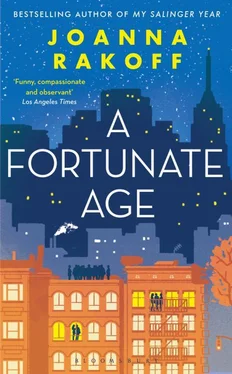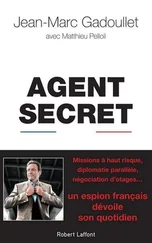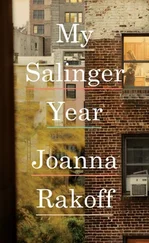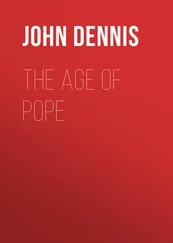“Hey!” came Sadie’s voice, hollow and distant, with a slight echo. “My long-lost friend. Is this the only way to reach you? You’re never at home.”
“Hey,” said Lil, stunned with relief. “I was going to call you earlier.”
Who is it ? mouthed Tuck.
“Really?” said Sadie, her voice rising with curiosity. “Why didn’t you?”
Tuck’s angry mien was breaking, senselessly, into a smile.
I love you , he mouthed, and pulled her to him, lifting her off the ground like a child, the cold air slapping against her cheeks. “Hang up,” he shouted.
“What’s going on?” asked Sadie. “Who is that?”
“Nothing,” Lil shouted, squealing a bit as Tuck began to spin her around. “No one.”
Lil and Tuck were having a party. It was to be their first big party in the loft—other than the wedding—which they’d now been living in for the better part of a year and which was, everyone agreed, absolutely made for parties. And now, after five dark months, they had a reason to celebrate: Tuck was writing a book.
It was Sadie who’d engineered the project from start to finish. One blustery day in March she’d called Lil and said, without her characteristic preliminaries, “Listen, I have an idea.” Why, Sadie posited, didn’t Tuck write a book about Ed Slikowski, or maybe not directly about Ed Slikowski, maybe a kind of first-person narrative nonfiction, six-months-at-the-world’s-hottest-magazine sort of thing. “Kind of Gay Talese–ish.” Sadie, who was still slaving away as an editorial assistant (none of them could understand why she hadn’t been promoted, or jumped to another publisher, or written her own book), could put Tuck in touch with an agent who did that sort of thing. Tuck would have to write a proposal and some sample chapters—that was it—which the agent would then send to editors, one of whom (undoubtedly, Sadie said) would give Tuck a contract. He’d then have a year (or maybe six months, if they wanted to get the thing out quickly to capitalize on Ed’s current, though waning, fame) to write the book itself.
And—to Lil’s shock—that was exactly what happened. Even more amazing was the fact that Sadie herself was to be Tuck’s editor. Her geriatric boss had allowed Sadie to acquire the book in her own name, which made it her first real acquisition, to use the publishing parlance. So they were celebrating for her, too, really.
Lil had almost died when she heard the amount of Tuck’s advance: $30,000, but then Tuck’s agent—a pudgy, goggle-eyed fellow who bore the odd name of Kapklein, with whom Sadie had worked, a zillion years ago, at Random House—explained that it was actually pretty modest. And, worse, that Tuck wouldn’t receive a check for that amount at the outset. A third would arrive upon the signing of the contract (still being worked over by Kapklein “so they don’t screw you over”), another third upon the completion of the manuscript, and a final third on publication of the book, with Kapklein’s fifteen percent commission deducted from each installment. But Kapklein wasn’t worried about the small advance, because, he said, Sadie’s house, the elegant, literary division of a huge publishing conglomerate, would lavish Tuck with “real, old-fashioned editorial attention” and the reputation of the publisher would add “luster” to the book, ensuring that it would be reviewed in all the right places, and so on. “And besides,” Kapklein told Tuck and Lil and an uncomfortable Sadie, when they went out for a celebratory drink, “There’s film potential here, too.”
But the money part didn’t really matter so much. The point was: Tuck was really a writer now. In a year or so, his book would be displayed in the window of the Union Square Barnes & Noble and reviewed in the Times . He’d have no trouble getting freelance work—in fact, magazines would ask him to write for them—and they’d travel around the world, on interesting, important assignments. On the subway, she’d see people bent over Tuck’s book and restrain herself from saying, “That’s my husband.” All of this was more important than their immediate financial crisis, which the first chunk of Tuck’s advance would only barely resolve. And the happy prospect of Tuck’s success went a good ways toward deflecting her worries about her own research, which had been giving her trouble lately, since Tuck had started staying at home.
In point of fact, it wasn’t the research itself that was giving her trouble. She could happily spend hours poring over source materials. But she seemed to have lost the ability to write, or, rather, to formulate her own ideas. When she sat down at her old enamel desk, her mind went everywhere but to Mina Loy—whom she was writing about for her modern poetry seminar, though in truth she found Loy’s life more interesting than her poetry—and she caught herself examining her cuticles, wondering if she ought to run out and spend seven dollars on a cheap manicure, or what she should wear the following night to one of Sadie’s book parties, or whether she should get her hair trimmed or continue to grow out the last cut, with its overzealous layering. And it wasn’t just her dissertation proposal: she’d taken incompletes in two of her three spring classes, due to the fact that she had been, frighteningly enough, truly unable to write her final papers for them. Her professors had been kind and accommodating, but made it clear that she had to get the papers in soon, and start thinking seriously about her orals.
The problem was, she thought, as she put wine in the fridge to chill for the party, that Tuck’s unhappiness over these months had cast a pall over their home, which had affected her. But soon he would be productive again—sitting in the study and writing, happily, at his old scarred desk, catty-corner from hers. She would get back to her own work. She would churn out her two papers by the end of June and then start reading for her orals. She still burned with shame about the incompletes and she’d told no one, not even Tuck.
The party was a success. A horde of Slikowskers—many of them still employed, unhappily, by Boom Time —raced manically around the loft, making blue drinks in the blender, beaming one another software from their Palm Pilots, and crowding, puppylike, around Ed Slikowski himself, who had stationed himself by one of the big front windows. He’d cut his hair and shaved his beard, so that his eyes loomed even larger and paler, sunk deep within the hollows above his cheekbones. “Hello,” she’d cried when he arrived, giving him an awkward hug.
“Lillian, what’s going on?” he asked, handing her a bottle of champagne.
“Well, the book , I guess,” she said, as the Slikowskers encroached on them. “I’d better put this in the fridge.”
“Yeah, it’s great for Tuck,” said Ed. “I feel like hell about what happened. Like I should have protected him more.”
“No, no,” said Lil, though she did wonder if Ed had done all he could to save Tuck. “It was inevitable, I think.”
“Yeah,” agreed Ed, shaking his head. “It was. That place is cancer now. It’s really depressing.” He’d left the magazine, just as Beth had predicted, back in April, and done the predictable: traveled through Nepal, then Vietnam, then home to California to visit his mother. “But it was good while it lasted, right?”
Lil nodded. “It must be hard,” she said, with a sudden flash of insight. “After you created it. To see things change so much. To lose control.”
Ed shrugged. “Yeah,” he said. “But, you know, I was sick of it anyway, really. It’s hard to be the boss. Signing off on every single thing. And all those deadlines.”
Читать дальше












